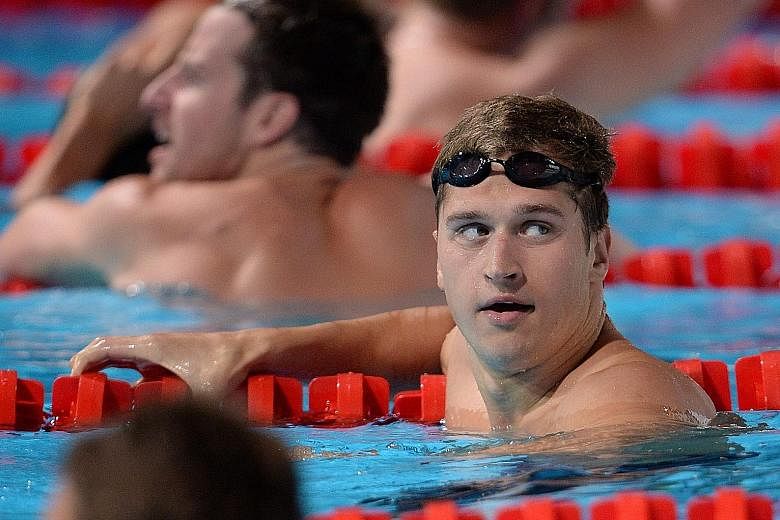RIO DE JANEIRO • A ban on all Russian weightlifters dealt a new blow to the country ahead of an International Olympic Committee (IOC) meeting that will be dominated by multiple doping scandals.
The International Weightlifting Federation (IWF) banned all eight Russian contenders - five men and three women - entered for Rio.
About 117 Russian competitors from the 387 initially put forward by the Russian Olympic Committee have now been banned from the Games. They include 67 track and field athletes.
"The integrity of the weightlifting sport has been seriously damaged on multiple times and levels by the Russians," the IWF said in a statement.
"Therefore an appropriate sanction was applied in order to preserve the status of the sport."
Among those banned, Artem Okulov is a world champion while Ruslan Albegov took a bronze medal at the 2012 London Olympics and Tatiana Kashirina a silver.
The IOC has taken fierce criticism for not ordering a blanket ban on Russia after an independent report said there was state-organised doping at the 2014 Sochi Winter Olympics.
The IOC executive is meeting this weekend to discuss the crisis. The full IOC meets from tomorrow.
World Anti-Doping Agency (Wada) president Craig Reedie, who is also an IOC vice-president, had led calls for a blanket ban on Russia over the doping.
The IOC decided last week, however, that individual sporting federations had to examine Russian entries and decide whether they should be allowed to compete.
The Olympic committee will take a final decision on Russian entries based on the recommendations. It is not yet known when this will be announced.
Boxing, golf, gymnastics and taekwondo are among sports still to announce their respective decisions.
Meanwhile, an Olympic medal-winning swimmer has tested positive for the banned substance meldonium, the US Anti-Doping Agency (Usada) announced on Friday.
Nikita Lobintsev was already one of seven Russian swimmers banned from competing in Rio by the International Swimming Federation (Fina) and Usada decided not to impose a new ban over the case.
On Thursday, the University of South California (USC) said it had suspended Russians Lobintsev and Vladimir Morozov from competing with its team.
The USC swimming club said on Thursday that Lobintsev and Morozov were no longer welcome to swim with the programme after they were named in an Wada investigation headed by Canadian law professor Richard McLaren.
Usada said the 27-year-old Lobintsev had been using meldonium for the past seven years. It was prescribed for him by Russia team doctors, who told him it would help strengthen his heart. However, meldonium was added to Wada's banned list at the beginning of this year.
"The disturbing pattern of use associated with this performance-enhancing drug appears to be one more example of growing practice in sport in which coaches ask for, physicians prescribe, and athletes use pharmaceuticals not for their primary purpose of health and wellness but to enhance athletic performance," said Usada chief executive Travis Tygart in a statement.
Lobintsev, who told Usada he stopped using the drug 10 months ago, tested positive for meldonium on June 16 in an out-of-competition test.
"Based on the latest guidance offered by Wada on June 30, 2016, for cases involving meldonium, Lobintsev will not face a period of ineligibility or loss of results," the statement said.
Usada said meldonium was easily accessible to Russia athletes because it was available over the counter in Russian pharmacies. Lobintsev told the agency he used it after the world championships in August last year and again the following month.
Lobintsev, who won a silver medal at the 2008 Olympics and bronze at the 2012 Games, was banned from Rio after McLaren was able to show that Russian officials ordered a cover-up of hundreds of doping tests.
AGENCE FRANCE-PRESSE, THE GUARDIAN

